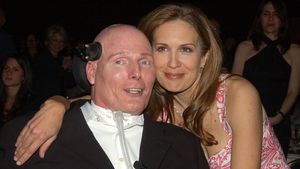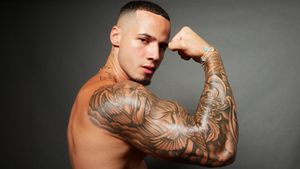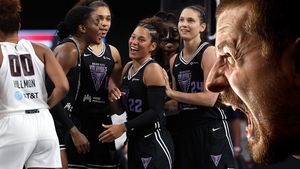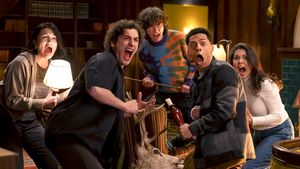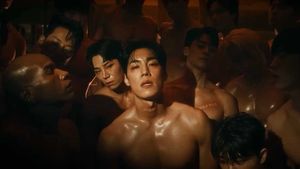In recent months photographer Ocean Morisset and I been documenting the stories of LGBT youths who have been driven to homelessness. Their experiences of cruel rejection in their homes as well as the ordeals they endure on the streets provide stark evidence of the harm still suffered by the most vulnerable in our community
We live in times that have seen tremendous progress for LGBT people. We have torn down some of our society's most formidable structures of homophobia. But progress for our community isn't monolithic. There are at least 200,000 LGBT youths suffering homelessness in our nation. The abuse, hostility, and neglect they endure seem to belong to the time before 1969, rather than 2015.
It is easier to change a law than to change the human heart. LGBT youths who have the misfortune to grow up in homophobic or transphobic homes face terrible cruelty and abuse. At the Ali Forney Center, the nation's largest organization dedicated to homeless LGBT youth, we hear heartrending accounts of their mistreatment. We hear about severe verbal abuse, kids being called "f****ts" by their parents, being told that they are disgusting, that they are "against God."
Unfortunately, it's not just verbal abuse. Often youths are subjected to physical violence in their homes; they tell us of being punched, kicked, choked. Also they tell of degrading and humiliating treatment, like the young man profiled below who was made to literally sleep in a closet.
When they become homeless, either being thrown out of their homes, or fleeing from the cruelty and abuse there, trauma intensifies. Homelessness is an ordeal for anyone, but for LGBT youths it is horrific. Listening to them describe their experiences on the streets, I am most struck by how frightened they are, how terrified. Terrified of the people who would rob them or bash them. They tell of being overwhelmed by stress, not knowing how to find food, or shelter, or protect themselves.
Too often the available shelters pose insurmountable obstacles. Many homeless youth shelters push religion on homeless kids, with youths being encouraged to pray, read the Bible, or participate in "pastoral ministry" programs. No young person's desperation for shelter should be exploited to promote a belief system. But this is especially problematic for LGBT youths who have so often been made homeless because of the religious beliefs of their parents. Even more problematic for LGBT youths is the hostility they face from other shelter residents. Unfortunately, many of the beds in this country are in large warehouse shelters. Warehousing homeless people creates dehumanizing conditions where LGBT youths are frequently targets of anti-LGBT violence and harassment. It is very frustrating to listen to so many LGBT youths explain how they feel safer sleeping in the streets than in large warehouse shelters.
Homeless LGBT youths need the advocacy and support of our broader community, The most important step we can take to protect them is to support shelter and housing programs where they can be safe from abuse, whether it be from abusive religious agendas or from conditions that promote violence and harrassment.
The Ali Forney Center offers emergency and long-term housing dedicated to LGBT youths. We also offer programs which help youths overcome the harm of rejection and homophobia, enabling them to be healed and to rebuild their lives. These include medical, mental health, and substance abuse treatment as well as extensive educational and vocational training and placement programs. All these services are offered in an environment where the youths can be free of the further trauma of homophobia and transphobia. We provide care to over 1,000 youths per year. Please consider offering your support here.
I would also encourage support for LGBT-dedicated homeless youth programs in other parts of the country. To learn more about such programs in your local area, please see our Web page devoted to the services available to homeless LGBTyouths across the country. The Ali Forney Center is dedicated to encouraging the success of programs dedicated to homeless LGBT youths, and we have offered training and technical assistance to many of these vital programs.
This holiday season, please help us bring homeless LGBT youths in from the cold to a place where they can find warmth, healing, safety and affirmation. Now meet three LGBT youths and hear about their lives on the streets of New York. --Carl Siciliano, executive director of the Ali Forney Center

Tank, 23
I grew up in Queens. I had to leave home because I was abused by my mother; called a f****t, vulgar stuff.
When I was with friends who were also homeless, we would huddle together, sometimes in Union Square, sometimes in Staten Island. We would sleep in Staten Island in abandoned buildings that had been left wrecked by Hurricane Sandy. Once when we walked on the floor, the floorboard broke underneath us, and a friend had his leg split open. We closed the wound and took him out into the street before we called the ambulance. We didn't want anyone to know where we were staying.
We were afraid to stay in the adult shelters -- we heard too many things about LGBT kids being beaten and robbed there.
A friend who knew I was on the streets got me a job at Taco Bell. I was working maintenance, working the night shift. I was also going to college. It was hard, sometimes I was crying. Sometimes I would look bummy, but I was still going to class. I had to go. I always heard my mother in the back of my head saying I wouldn't get nothing for myself.
I want to be a veterinarian. Plus I want to open a home for youth who have nowhere to go.

Angel, 22
My grandmother raised me and my brothers and sisters. She died when I was 14. For a while I stayed with my aunt. It was a nightmare. She wouldn't recognize my gender. I had a job at a theater, and she charged me $200 a week to sleep in a clothes closet on a pillow. I tried to make the best of it. At least the pillow was tempurpedic; it was the comfiest pillow ever.
When I became homeless I tried to go to a big shelter for hundreds of kids. The intake worker refused to respect my gender identity. I showed her that I had a male ID, but she said it didn't make a difference, that my wanting to be respected as a male was bullshit.
They put me in a female dorm. One of the other girls there said I couldn't use the bathroom unless I payed her $40! She raised her fist to me and threatened me for $40!! I couldn't deal with it, so I decided to sleep in the subway. I slept in the subway for two weeks. I found the whole thing so stressful that I couldn't eat.
It was better when I stayed in an LGBT shelter. They respected me when I was transitioning.
Today I got a promotion at my job at Dunkin' Donuts. Now I'm a shift leader!

Quincy, 21
I had to leave my home because my mother couldn't accept me. She would get angry about the way I acted and the clothes I wore. It was always "You're a fag, you're a batty boy" (she's from Jamaica).
For a while after I left home I was sleeping on friends' couches. Then for two weeks straight I was sleeping on the subway. I would clutch all my stuff really tight, holding them close, especially after I was robbed.
Mornings were rough because I was so exhausted. I could never get enough sleep, only two or three hours. It took a toll on my body. I was always tired and irritated. I couldn't focus.
I was afraid to go to the men's shelter. I have a friend who stayed there, and when they found out he was gay they beat him up mercilessly. If they would do that to a grown man, what would they do to a scrawny 21-year-old gay kid.
When you are on the streets, riding the subways, nights are very tough. Sometimes I felt so alone. Nobody cared, nobody asked about me. I was just alone.




